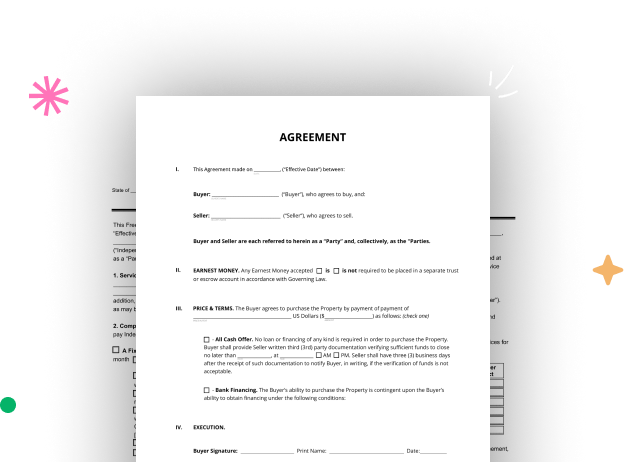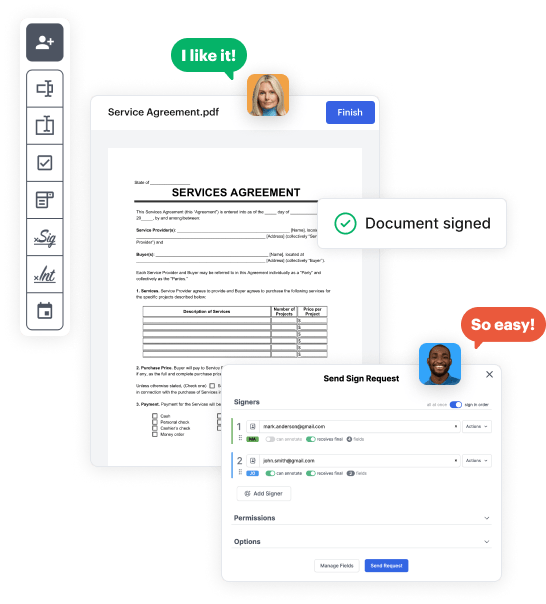

First, log in to your DocHub account. If you don't have one, you can simply register for free.
Once logged in, head to your dashboard. This is your main hub for all document-related processes.
In your dashboard, choose New Document in the upper left corner. Opt for Create Blank Document to create the Professional Plumbing Contract from scratch.
Place numerous elements like text boxes, photos, signature fields, and other elements to your form and assign these fields to particular users as needed.
Refine your template by incorporating instructions or any other crucial details using the text tool.
Thoroughly examine your created Professional Plumbing Contract for any errors or needed adjustments. Make use of DocHub's editing features to fine-tune your template.
After finalizing, save your copy. You can choose to save it within DocHub, transfer it to various storage solutions, or forward it via a link or email.